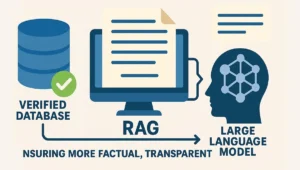Artificial intelligence (AI) tools are revolutionizing the research landscape by streamlining various aspects of the research process. This article compares several AI tools for researchers, highlighting their unique features and applications. Tools like Trinka and Enago assist in writing and editing, while platforms such as Scholarcy and Scite enhance citation management and research discovery.
Other AI tools for researchers, including Research Rabbit and Litmaps, transform the literature review process, making it more efficient and collaborative. Each tool offers specific functionalities, from managing citations and finding journals to analyzing data and visualizing research connections. By integrating these AI tools into their workflow, researchers can significantly boost their productivity and focus more on their work’s creative and analytical aspects.
This comprehensive overview guides researchers to navigate the myriad AI options available, ultimately aiding them in selecting the most suitable tools for their needs. Dive deeper into this transformative international at Researchly now.
Table of Contents
Types of AI tools for researchers
Today’s researchers face a rapidly expanding mountain of information. New studies, data sets, and insights emerge constantly, making it challenging to keep up and manage them effectively. This is where AI tools for researchers come into lend a helping hand.
AI tools do more than automate tasks; they act as intelligent assistants designed to streamline your research workflow. Imagine having AI at your fingertips to help you navigate vast libraries of research, meticulously organize your citations, and even analyze complex data sets.
AI’s applications extend far beyond research, but its impact within specific fields is undeniable.
AI Tools for Research can greatly enhance the research process by offering new ways to discover and explore sources for literature reviews and assignments.
These tools encompass various resources, techniques, and software that enable researchers to collect, analyze, and interpret data effectively. From preprints to academic journals and books to versatile databases, researchers have access to a wealth of resources to advance scientific progress and increase impact.
Various research tools cater to specific research areas such as market research, user experience (UX) research, and academic research, providing tailored solutions for each discipline.
Examining the possibilities of AI tools for researchers
In the following sections, we’ll explore the functionalities of AI research tools and how they can empower you to conquer the ever-growing research landscape.
Trinka
One of the AI tools for researchers is Trinka, an AI-based grammar AI designed to help users improve their writing skills.
Trinka has a file editing API that is equipped with full authoring tools, making it easier for users to manage documents and auto-format manuscripts. With its Style Guide Preference, topic-specific corrections, and in-text spelling, Trinka is specifically designed to correct grammatical errors for technical and academic writing.
Currently, Trinka offers limited service in the field of Literature Review and Journal Finder, but it works fully in the field of citation, which is for reference.
Except for the mentioned cases, Trinka provides complete services in the fields of Writing and Editing, Paraphrasing, and Copilot.
Enago
Enago is an AI-powered tool designed to simplify your research writing process. It helps you with several tasks, including:
- Managing citations: Keep track of your references easily and avoid citation headaches.
- Finding the right journals: Discover suitable journals to publish your research in.
- Writing and editing: Improve your writing with AI suggestions for grammar, clarity, and style.
- Paraphrasing: Enago can help you rephrase sentences while maintaining their meaning.
- Enago makes research writing more efficient and ensures your writing is polished and publication-ready.
Scholarcy
Scholarcy has an extension with open-access repositories for Edge and Chrome browsers. Additionally, the Scholarcy Library, a paid service with a monthly subscription, allows you to search between article summary cards or text from any device.
By providing services in the field of Citation and Reference Management, Scholarcy helps the researcher to read the article quickly, follow the arguments, and remove non-original points in a few minutes.
Currently, Scholarcy offers limited services in the area of Literature Review.
Scite
Scite is an innovative platform designed to enhance research discovery and evaluation through Smart Citations. Smart Citations provide context by revealing whether a citation supports or contradicts the cited claim. Scite also, extracts and analyzes 1.2 billion citation statements from 187 million articles, book chapters, preprints, and datasets. Researchers can ask questions directly from Copilot and get citable answers.
Elicit
Elicit is another advanced artificial intelligence research assistant designed to change the way research is conducted. Elicit is an AI-powered research assistant developed by startup company Ought in collaboration with the Allen Institute for Artificial Intelligence. It automates laborious aspects of the literature review process, Researchers can quickly discover relevant papers, extract key information, and summarize evidence on specific topics of interest.
Research Rabbit
Feeling lost in the labyrinth of research papers? ResearchRabbit, from the innovative minds at ResearchRabbit AI, is here to be your guide. This intuitive tool tackles the often-tedious tasks associated with literature reviews, making it a valuable asset for researchers of all levels.
ResearchRabbit empowers you to:
- Streamline your literature review: Effortlessly explore relevant research by following citation trails and uncovering hidden connections.
- Effortless citation management: Organize your references with ease and avoid citation woes.
- Seamless collaboration: Share your research findings and collaborate with colleagues on projects in real time.
- ResearchRabbit transforms the literature review process from a solitary slog into a collaborative journey of discovery. Let’s explore how this powerful tool can revolutionize your research workflow.
SciSpace
One of the AI tools for researchers is the SciSpace plugin that explains the content of scientific articles and journals. To get more detailed answers, highlight a part of the text and ask Copilot to explain it.
This tool provides services in the field of analyzing data. Analyzing data is a process that refers to extracting insights and valuable information from data using quantitative and qualitative methods. This will help in business and even in different sciences. For example, researchers use it to verify their theories.
This tool provides complete services in the fields of Literature Review, Citation, Reference Management, Paraphrasing, and Copilot.
Petal
Petal’s mission is to create engagement, and collaboration and increase the visibility of academic research using public tools. Petal officially launched in 2018. Petal is a software that aims to increase productivity and provide better services to researchers and academics.
Using artificial intelligence, Petal helps you to connect the generated knowledge and resources and answer your questions. In the fields of Citation, Writing, and Editing, Copilot provides complete services.
Petal is useful for three groups of people:
- Academics
- Collaborators in R&D
- Industry professionals
Petal has many uses, but it is not available for free, if you want to access its AI features, you have to pay for the subscription.
This tool in the area of Collaborate provides facilities to invite your colleagues, if you are working in a group on a project, writing an article together, or you are judging others’ articles collectively. Petal is an environment where you can easily collaborate with others.
Hyper Write
It is a versatile content creation tool based on artificial intelligence that helps to create content on any topic in any format. This program is trained on a huge data set of text and codes, which allows it to produce creative and informative text tailored to specific needs.
You can use it to create suggestions or use it anywhere in your browser with the help of an extension. Users can start integrating it into their workspace. It comes with free plans that have limited monthly production and rewriting and provide complete services in Writing Editing, and Paraphrasing.
Litmaps
A Dynamic Research Tool Litmaps is a cutting-edge research companion that transforms the way academics engage with scholarly literature. Here’s a brief overview:
Litmaps redefines literature review, citation management, and reference organization. Unlike traditional keyword-based searches, Litmaps leverages the citation network. It maps connections between research papers based on their citations, creating an intricate web of knowledge. Researchers input a single paper, and Litmaps generates a visual literature map, a dynamic representation of related papers.
How It Works: Litmaps visualizes relationships between papers, revealing trends, gaps, and unexpected connections. Researchers explore relevant articles using the map and organize them with Tags. Stay up-to-date by automatically tracking the latest research in your field.
Semantic Scholar
Semantic Scholar is a free, artificial intelligence-based research tool for scientific literature. It uses artificial intelligence and pioneering engineering to understand the semantics of scientific literature helps researchers to discover related research and provides limited services in the fields of Literature Review, Citation, Reference Management, Journal finding, and in the field of analyzing data.
The main features of Semantic Scholar include the following:
Artificial intelligence-based search engine for scientific texts, semantic understanding of research publications, access to a wide collection of scientific articles from all scientific fields.
Semantic Scholar uses artificial intelligence and engineering to understand the semantics of scientific literature and help researchers discover relevant research.
Tableau
Tableau, a powerful data visualization tool, empowers researchers to explore and analyze data effortlessly. Founded in 2003 at Stanford, Tableau’s mission is to make data accessible through intuitive visualization.
Tableau can manage massive datasets with hundreds of millions of rows, surpassing Excel’s capabilities. Researchers can connect their articles to datasets and results using Tableau Public. Access online help forums and local user groups. Tableau seamlessly integrates with “R” and Python for sophisticated analysis.
In summary, Tableau bridges the gap between raw information and actionable insights, making data analysis easier for researchers.
Zotero
Zotero is one of the add-ons for the Firefox browser, with the help of which you can pay for Citation, management of references and scientific resources, and index them easily. Zotero can also be used to classify and organize scientific research findings at a wide level. By using Zotero, you can transfer your research references to the web and use them at any time, place, and computer, and even share them with others.
EndNote
This software uses AI capabilities for recognition, citation, and reference management. It allows users to automatically import their references from different sources and easily create the references needed for their articles and research.
Hemingway EditorHemingway Editor is the name of a new, practical, and powerful tool in the field of text writing and editing, with the help of which people can improve their writing and editing level and produce better quality content. Hemingway Editor is a text editing software developed based on the literary writing style of Ernest Hemingway and helps users to improve their texts and write them in a simple and understandable style.
With various features, this tool helps users to identify complex and unnecessary sentences and simplify them. This software can remind users of tips such as using current sentences, using simple terms, avoiding the use of frequently used and repetitive words, and changing the structure of complex sentences to improve the quality of textual content.
By highlighting phrases, complex words, clear terms, and … like a professional editor, and help in the field of Writing and Editing, it reduces the amount of your writing errors.
ProWritingAid
ProWritingAid software is a professional and intelligent editor that is usually used to improve the structure of articles in the field of Writing and Editing. This software helps users – especially freelancers and professional writers – to remove all spelling mistakes and choose very smart and optimal words. ProWritingAid account features make the grammar of a text coherent and spelling, spelling, and punctuation are written in the most correct way possible.
Copy.ai
Copy.ai’s intelligent tool allows authors, marketers, business owners, and copywriters to create quality content. AI tools for researchers can generate different content, including blog content, product descriptions, and more.
To use this artificial intelligence tool, you can enter the Copy.ai site and see all the templates that can be produced. Finally, by installing the plugin, you can make content creation easier. Of course, the full use of Copy.ai artificial intelligence is not free, and you have to pay for it and buy an artificial intelligence account.
This tool has many advantages, such as an easy dashboard, the ability to create content in the shortest time, simple content creation, and fast and useful email support. This tool is not suitable for producing long content.
Connectedpapers
ConnectedPapers is an innovative platform designed for researchers, scientists, and students. Here’s what you need to know:
Purpose: ConnectedPapers facilitates seamless exploration of research articles relevant to your field.
So, in ConnectedPapers, you will: Easily discover and organize relevant articles, keep track of citations effortlessly, and Analyze research data efficiently. In summary, ConnectedPapers empowers you to stay informed and collaborate effectively.
Jenni.ai
Jenni is an advanced system designed to interact and respond to users intelligently and naturally. Using natural language processing (NLP) and machine learning techniques. Jenni includes a deep understanding of users’ questions and commands and provides appropriate, accurate, and timely answers. AI tools for researchers used in many fields such as customer service, education, entertainment, and even medical and psychological counseling.
The advantages of Jenni artificial intelligence:
Saving time, increasing productivity, creating discipline, writing and editing, and…
Also, it provides limited services in the field of Citation.
Conclusion
The research landscape can be challenging, but AI tools for researchers are here to lighten the load and enhance efficiency. Each tool, from advanced grammar checks to dynamic literature mapping, offers unique functionalities that cater to various aspects of the research process. By leveraging these AI-driven solutions, researchers can streamline tedious tasks, improve the quality of their work, and focus on the creative and analytical elements of their studies. As AI continues to evolve, its role in research will undoubtedly expand, providing even more innovative ways to support and empower researchers. select the tools that best meet your individual needs to elevate your research journey and stay ahead in the ever-evolving academic world.
Share your experiences with AI tools for researchers in the comments below!







